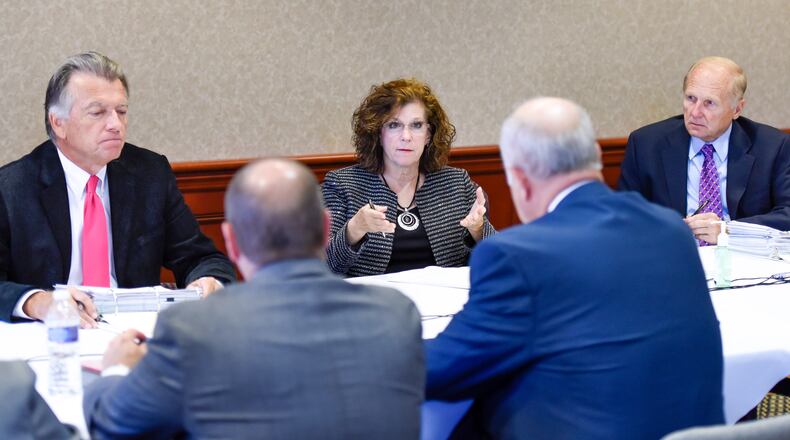Superintendent Lisa Guliano said they will wait until they see figures from the triennial tax reassessment before deciding what type of levy they will ask for.
“After we see how the property values come out after that review, we’ll be able to make a determination of can we request a replacement or are we actually going to have to ask for new millage,” Guliano said.
Butler County Engineer Greg Wilkens will also meet with the commissioners to talk about his spending plans for next year. The largest road work project is widening Cincinnati Dayton Road from West Chester Road to Interstate 75, adding sidewalks and replacing a bridge. The cost estimate is $7 million to $8 million which will be paid for mainly with grants.
Spokesman Chris Petrocy said they will try their best not to disrupt traffic too much.
“Cincinnati Dayton Road will remain open through construction, we’re just going to have to maintain traffic it’s just such a major section of roadway,” Petrocy said. “But we’re probably going to be doing most of the construction at night.”
Only a “minuscule” portion of Wilkens’ budget is paid for with local taxes the lion’s share is paid for with gasoline taxes and federal and state money. Wilkens’ said they will be leveraging $4.7 million of local construction funds to complete $26.2 million in projects.
The commissioners will also be meeting with the Board of Elections, water and sewer, the auditor and others.
Commissioner Don Dixon told the Journal-News the fallout from the national fight over health care has come to roost here. They have gotten rate hike quotes as high as 11 percent — one Dixon said was immediately ash-canned — but they will likely end up in the eight percent range, rather than the three percent increase they were projecting.
“There’s just nothing available out there and everybody is scared,” he said. “We’ve had three or four attempts to redo the health insurance legislation, they can’t get it done and all the insurance companies are saying ‘hey, we’re going to raise our premiums, there’s no reason why we shouldn’t.”
This year the county switched to a self-insured model — with a stop loss guarantee against huge claims — after several years of extraordinarily high claims — a single claim for $5 million happened in 2013 — shoved their premiums into double digits. Dixon said the self insurance route was the right way to go.
“We do have a little more control because we’re self insured, so that’s a good thing, but the whole health insurance issue, it really is a disaster…,” Dixon said. “We’re going to deal with it, we’ve got contingencies set aside to deal with it, so we’re not in any danger of being in an adverse position.”
About the Author
